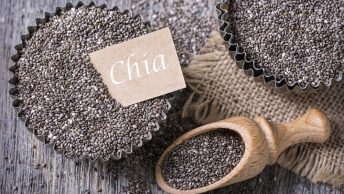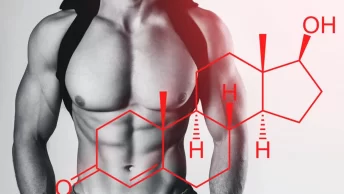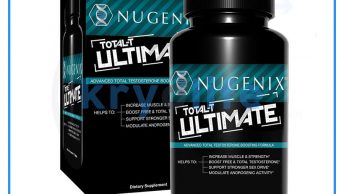Quick summary
- Obesity directly inhibits testosterone secretion, leading to lower serum testosterone levels and negatively impacting the body’s ability to utilize active t-hormone. Losing excess weight can help boost testosterone secretion, with studies showing up to a 50% increase in people who lost their excess weight.
- High-fat content can affect endothelial function in blood vessels, preventing active absorption of serum testosterone and potentially leading to insulin resistance, which is associated with reduced testosterone secretion.
- Natural testosterone dietary supplements, such as Prime Male, TestoFuel, Testogen, Testolan, and TestRX, can help increase testosterone levels and burn fat simultaneously by providing vital nutrients for biosynthesis. These supplements are generally safe and don’t cause side effects.
We all need some fat, but an excessive amount of muscle to fat ratio isn’t something we need.
It can aggregate and tamper the looks as well as free testosterone levels might dive, thus putting your health at risk.
In fact, healthy testosterone levels will ensure that your body maintains a good fat: muscle ratio, thereby making you look sexy.
For instance, one study discovered that compared to men with a balanced weight, overweight men are more than 8x as prone to have a low testosterone level.
Let’s try to understand the correlation between fat and testosterone level.
Will losing fat improve your testosterone?
Obesity is a direct inhibitor of testosterone secretion. It will also reduce the serum testosterone levels, thereby reducing the amount of active t-hormone that can use utilized by the body.
The endothelial function of the blood vessels is affected due to high-fat deposition, thereby preventing the active absorption of serum testosterone into metabolism.
High-fat content can also lead to insulin resistance in the long run, which is associated with more metabolic syndromes, eventually reducing testosterone secretion.
According to a study, losing weight can help to boost testosterone secretion. If you’re overweight (or hefty) and have low T levels, the best bet will be to lose that excess load of adipose from your system.
It is found that up to 50% increase in testosterone was observed in people who lost their excess weight.
How to accelerate your weight loss while increasing testosterone levels?
Well, if you need to increase your testosterone and reduce your excess fat simultaneously, then a natural testosterone dietary supplement is the only safe choice available.
These supplements can assist your metabolism in testosterone secretion by supplying all vital nutrients needed for biosynthesis.
Below are some of the top-rated natural dietary supplements you can consider for increasing testosterone and burning your fat.
Unlike steroids which can give a faster testosterone hike, these supplements are slower in action, but the results are natural and don’t cause any side effects.
The majority of the ingredients used in these products mentioned are herbal extracts, vitamin compounds, or minerals to supplement the metabolism.
Therefore, you don’t even need a doctor’s prescription to procure or use these products.
Conclusion
You are likely to see low testosterone in case you are overweight. Furthermore, under such conditions, your body can be tossed into a damaging cycle where many metabolic processes are hindered.
Testosterone secretion is one such process that is affected due to excess fat deposit. Not just that, the t-hormone levels in the blood are critically affected because of obesity.
The best workout is to use a natural testosterone booster, a dietary supplement made use of natural ingredients. These products are generally safe and don’t cause any side effects.







